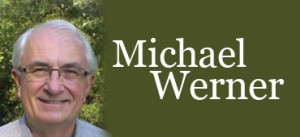Threads of Humanist History

History sometimes creeps quietly into the present, as little-known events in the past can have a huge influence today. Despite our small numbers, humanists have always made a significant mark on society. Here is a little of our history that shines a light on how we’ve affected the larger culture, both for good and bad.
The Humanist Manifesto was written in 1933 in the depths of the Great Depression and accordingly reflects the trauma of the period with a certain mild socialism. (As Kurt Vonnegut once said to me, “You have to understand that during the Depression, capitalism had failed.”)
Intellectually, humanism was centered both at Columbia University and the University of Chicago with leaders such as John Herman Randall Jr., John Dewey, and Dewey’s students Sidney Hook and Corliss Lamont. Two of Hook’s students who continued the legacy were Paul Kurtz and Richard Rorty. All of them took on the label of pragmatism, rejecting the idea of absolute foundations and certainty in favor of, as Dewey called it, “warranted assertability.” They saw knowledge gained primarily through science as the best way to avoid dogmatic ideology in favor of what actually works for human welfare.
Many humanists throughout the 1930s, both in the United States and Europe, leaned toward the left and many liberal intellectuals became apologists for Marxism in the Soviet Union. Both Hook and Lamont were outspoken communists in the early ’30s. There were rumors of the pogroms in the Soviet Union, but there was little reliable information getting out and many chalked the rumors up to right-wing lies.
During the Depression, liberals of all stripes were drawn to the Communist Party in the United States because it was one of the few organizations working for equal rights for women, civil rights, labor, free speech, economic justice, and secular freethinking causes. This came back to haunt many liberals in the McCarthy era when people were blacklisted, incarcerated, and otherwise tormented for merely attending a lecture at a Communist Party meeting on civil rights, for example, but having no party sympathies.
Around 1936 information about the atrocities in the Soviet Union became undeniable. The Dewey Commission (officially the “Commission of Inquiry into the Charges Made against Leon Trotsky in the Moscow Trials”) was formed in 1937. Liberals and humanists had to do a lot of self reflection, out of which many formed groups to rescue the labor movement from the dominance of the wartime Communist Party.
In 1953 Corliss Lamont became one of the fiercest opponents of Senator Joseph McCarthy’s Senate Permanent Subcommittee on Investigations when he refused to answer questions about his beliefs or those of others, citing the First Amendment’s guarantee of free speech. He later formed and chaired the National Emergency Civil Liberties Committee.
Lamont, a former president of the American Humanist Association and 1977 Humanist of the Year, remained a fairly hardcore leftist until he died. Hook, while still holding onto socialist ideals, turned sharply away from Communism and saw freedom as the guiding principle for humanism. He even became a darling on the intellectual Right for his strong anticommunist stance and support for the Vietnam War. Hook received the Medal of Freedom from Ronald Reagan in 1985.
Returning to the late 1930s, news of 30 million people dying in the Gulags was treated differently by the intellectuals in Europe.
The Frankfurt Institute for Social Research at the Goethe University Frankfurt would become a center for neo-Marxists answering the question of how Marxism could descend into barbarism in the Soviet Union. Their answer, harkening back to Karl Marx, was that Marxism itself didn’t cause the problems; it was the Enlightenment that created problems in both Marxism and capitalism and led to totalitarianism. How, you may ask? They argued that reason turns against itself and merely becomes a tool for power and control over the masses. Mindless rationalism leads to stultifying bureaucracy and rationalization, not reason. The Frankfurt school included Max Horkheimer, Theodor W. Adorno, Herbert Marcuse, Friedrich Pollock, and later Walter Benjamin and Jürgen Habermas and had a significant influence on later postmodernists. All of them represented themselves as a variety of humanist.
Later, Michel Foucault argued against the possibility of any fixed human nature or any fixed truth. Everything we know, he argued, is driven by power and control and all knowledge is a social construction. Oppressed minorities figure prominently in his works. He argued against humanism—how he arrived at that argument, though, is interesting.
At the time, the existentialist Jean Paul Sartre dominated French philosophy, especially after he wrote his classic popular piece, Existentialism is a Humanism, in 1946. Foucault wrote that in order for him to succeed in philosophy, he would need to set himself apart from Sartre, so anything Sartre was for, he would be against, including humanism and any universal human nature. Noam Chomsky became an ardent critic of Foucault, defending reason, science, humanism, and the existence of a fundamental human nature.
All this isn’t just irrelevant abstract intellectualizing. Culturally, the ideas expressed by the postmodernists/critical theory/continental philosophers were filtered into the mainstream and we hear them today in such things as “one idea is as good as another,” “everything is relative,” and “that’s only a culturally imposed value.” We also see these ideas in the rejection of the Enlightenment values of reason, science, and humanism. We see the rejection of universal values. There is a rejection or dismissal of the common good in favor of the focus on the particular needs of one group.
Richard Rorty, mentioned earlier, became the most prominent American associated with the postmodernists, although he rejected the label, calling himself a neo-pragmatist. Rorty rejected the idea that science can depict the world. He based this on a theory of language, which he thought could never mirror nature. He thought all we could do is fall back on contingency, irony, and solidarity with one another in a world where language can never describe the world in a meaningful way. He did defend the ideas of progress and humanism against the critical Left and argued for a progressive pragmatic politics.
In a meeting before Sidney Hook died, Hook took his pupil Rorty to task for abandoning science as a valid tool while still trying to call himself a pragmatist. I suspect Rorty never recovered from the challenge on his core philosophy that we can never know the truth, and I see much of his later career as an attempt to answer his early mentor. Tragically, I think he knew he couldn’t.
We could examine more of the postmodern beliefs, but ultimately they have been shown to be the result of taking good (and useful) ideas to their irrational extreme. It’s true that much of our knowledge becomes biased by needs of power and control, but it doesn’t follow that we have no knowledge. It’s true that various writings have many possible interpretations. It doesn’t follow that an author has no valid point to make. It’s true that science has made some grievous errors. It doesn’t follow that science isn’t progressively learning from those errors. It’s true that language can influence our thinking. It doesn’t follow that all knowledge is relative to our language. It’s true that reason has been used, and continues to be used, as a tool for oppression. It doesn’t follow that we should abandon it or else, as Chomsky has said, “Then only the rich and powerful will have it.”
 Postmodernism has been largely discredited and is on the wane. Even some of its most ardent followers are disavowing it. As the English historian Richard Evans said, “Of course it is right to say that we can never know the whole or absolute truth about anything in the past. But, just because we can never attain the whole or absolute truth, just because we make mistakes in our search for the truth about the past, just because there will always be something new to say about any historical subject, it does not follow that there is no such thing as the truth at all.” To its credit, however, postmodernism teaches us always to be aware of our prejudices and thus is a counter to our hubris.
Postmodernism has been largely discredited and is on the wane. Even some of its most ardent followers are disavowing it. As the English historian Richard Evans said, “Of course it is right to say that we can never know the whole or absolute truth about anything in the past. But, just because we can never attain the whole or absolute truth, just because we make mistakes in our search for the truth about the past, just because there will always be something new to say about any historical subject, it does not follow that there is no such thing as the truth at all.” To its credit, however, postmodernism teaches us always to be aware of our prejudices and thus is a counter to our hubris.
Postmodernism has been termed “fashionable nonsense” in the eponymous book (subtitled Postmodern Intellectuals’ Abuse of Science) by Alan Sokal and Jean Bricmont. But while postmodernism is quickly decaying in important academic circles, its pernicious effects linger throughout academia and the general culture. Even one of its greatest exponents, Terry Eagleton, who wrote the postmodern classic Literary Theory, recently wrote a refutation titled After Theory. He saw that he was going to be on the wrong side of history and rushed to the exit.
Postmodern thinking is an extreme form of subjectivism and cynicism that subtly took over much of general culture. There is much to inform us within postmodern thought, but ultimately it is like a petulant child who wants knowledge pure and certain, and if it can’t be obtained, pouts, throws a temper tantrum, and walks away.
Rectifying the disastrous effects of postmodernism that undermined Enlightenment values is going to be difficult. Luckily people like Steven Pinker, Robert Reich, and many others are trying to restore a trust in reason, science, and the common good. Seeing every person as part of the human family is an ideal that is both scientifically true, as evidenced by the fact that that we’ve found over two hundred common human attributes, and it instills in us an ethical viewpoint that embraces both the universal and the particular.
History will record humanists at the forefront of all these diverse and opposing strands of intellectual dynamics that make up modern culture. Humanism is an evolving tradition, never stagnant. The modernism/postmodernism dialectic now informs all modern intellectual culture. Humanists like Sartre, Max Horkeimer, Theodor W. Adorno, Chomsky, Rorty, Lamont, Hook, Sokol, and Pinker have challenged fundamental ideas while staying true to our basic precept of using critical thinking to expand how best to know and to live. It’s been a challenging dialogue the past few decades, but one that has made humanism, especially the Enlightenment strands, stronger and more resilient. Weaving through all modern culture, our Enlightenment roots are still evolving.
